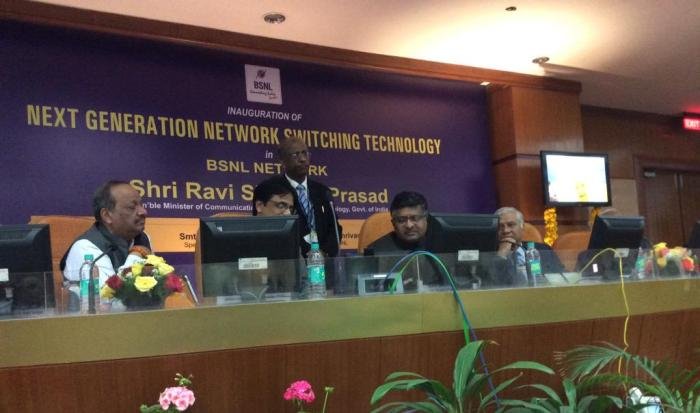Communications and IT minister Ravi Shankar Prasad on Friday inaugurated the next generation network of BSNL by making a video call to BSNL officers in Bangalore using this network.
During the inauguration, telecom minister said: “The next generation network of BSNL will be a big leap towards voice and data convergence and digital progress of India. We must use the NGN network for promoting eHealth, eEducation services in villages.”
He said BSNL must collectively think about changing themselves according to the changes in the society and technology.
“Whenever it comes to public service, the country looks towards BSNL. It has been proven during Kashmir floods and Andhra Cyclone,” he tweeted.
Broadband must become a national infrastructure. Can we have a broadband duct in every building just as we have water and electricity ducts?
— Ravi Shankar Prasad (@rsprasad) March 13, 2015
The telecom minister suggested that broadband must become a national infrastructure. “Can we have a broadband duct in every building just as we have water and electricity ducts?,” he said at an event in Delhi today.
BSNL plans Rs 1,000 crore investment
BSNL, which has introduced next generation Network (NGN) technology in its fixed line telephony, is planning to invest around Rs 1,000 crore in upgrading the time-division multiplexing (TDM) technology. NGN technology will provide both fixed line and broadband from same telephone exchange.
At present, BSNL plans to convert 14 million telephone lines with NGN technology. This is expected to cover more than 80 percent urban customers and approximately 90 percent rural customers. It is expected that entire fixed line customers will have NGN facility by December, 2017.
The voice call on this new technology will be made available at the same rate at which the fixed telephone is made available by BSNL as on date. However, BSNL would like to charge something extra for video calls.
Image source: BSNL
editor@telecomlead.com

